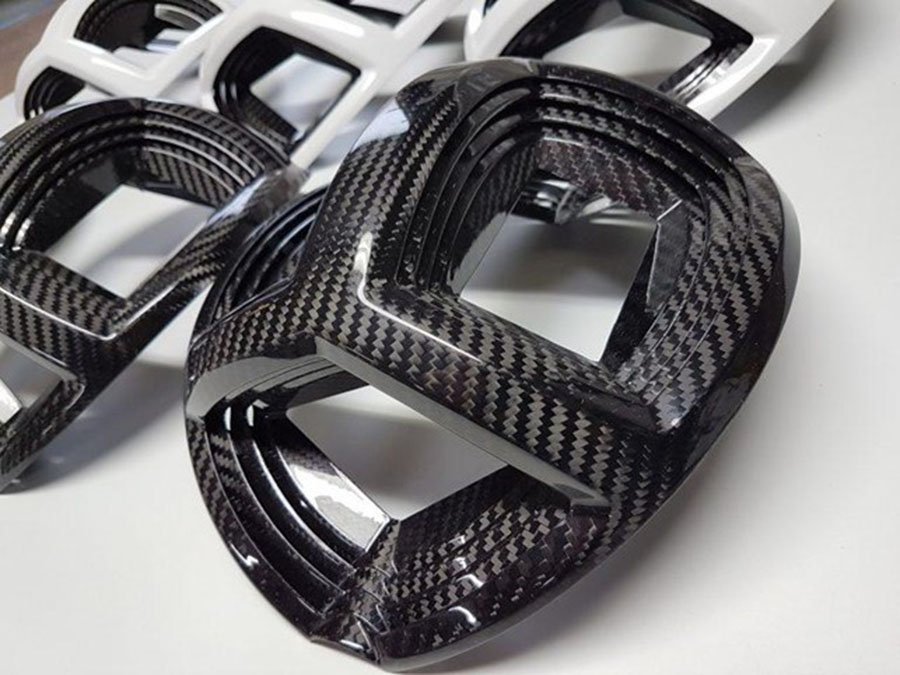Automotive
Rena Monrovia When You Transport Something By Car …

In the bustling world of logistics, the means by which goods are transported play a pivotal role in shaping efficiency, cost-effectiveness, and environmental impact. Among the various modes of transportation available, utilizing cars for transporting goods has garnered attention for its unique set of advantages and challenges. In this article, we delve into the realm of rena monrovia when you transport something by car …, particularly focusing on the significance of Renamonrovia in the process.
Advantages of Transporting Goods by Car
Convenience
When you transport something by car, the convenience factor stands out prominently. Cars provide a flexible solution for transporting goods, allowing for door-to-door delivery options that can be tailored to specific needs. Whether it’s delivering small packages or transporting perishable goods, the accessibility of cars makes them a popular choice for businesses and individuals alike.
Cost-effectiveness
In comparison to larger transportation vehicles such as trucks or trains, cars offer a cost-effective alternative for transporting goods over short to medium distances. The lower operational costs associated with cars, including fuel consumption and maintenance, contribute to cost savings for businesses, especially those operating on tight budgets.
Flexibility
The versatility of cars enables them to navigate through various terrains and reach destinations that might be inaccessible to larger vehicles. This flexibility is particularly advantageous in urban areas with narrow streets or congested traffic conditions, where maneuvering bulky trucks or vans can be challenging. Additionally, cars offer the flexibility to make multiple stops along the route, accommodating diverse delivery requirements efficiently.
Challenges of Transporting Goods by Car
Limited Capacity
Despite their advantages, cars have limited cargo capacity compared to other modes of transportation. While they excel in transporting smaller loads or urgent deliveries, larger shipments may necessitate multiple trips or alternative transportation methods. This limitation can impact efficiency and scalability, especially for businesses dealing with bulk goods or wholesale distribution.
Traffic Congestion
One of the inherent challenges of transporting goods by car is navigating through traffic congestion, which can lead to delays and inefficiencies in delivery schedules. Urban areas, in particular, experience heavy traffic during peak hours, posing logistical hurdles for timely deliveries. Employing strategies such as route optimization and real-time traffic monitoring can mitigate the impact of congestion on transportation operations.
Environmental Impact
The environmental footprint of car-based transportation remains a concern due to emissions associated with fuel combustion. While modern vehicles are increasingly adopting eco-friendly technologies such as electric or hybrid engines, traditional combustion engines still dominate the roads. Balancing the convenience of car-based transportation with sustainability considerations requires innovative solutions and collective efforts towards reducing carbon emissions.
Tips for Efficient Goods Transportation by Car
Route Planning
Effective route planning is essential for optimizing the efficiency of rena monrovia when you transport something by car …. Utilizing GPS navigation systems and traffic prediction tools can help identify the most time and fuel-efficient routes, minimizing detours and idle time. Incorporating factors such as traffic patterns, road conditions, and delivery schedules into route planning strategies enhances overall operational efficiency.
Vehicle Maintenance
Regular maintenance of vehicles is paramount to ensure their reliability and performance in transporting goods. Scheduled inspections, oil changes, tire rotations, and brake checks help prevent breakdowns and ensure the safety of both drivers and cargo. Implementing a preventive maintenance schedule and addressing any mechanical issues promptly can prevent costly disruptions to transportation operations.
Cargo Handling
Proper handling and securing of cargo are crucial to prevent damage or loss during transportation by car. Utilizing appropriate packaging materials, securing loads with straps or restraints, and distributing weight evenly within the vehicle minimize the risk of accidents or spillage. Training drivers in proper loading and unloading procedures and adhering to safety regulations enhances the integrity of goods throughout the transportation process.
Case Studies
Successful Car Transport Businesses
Exploring case studies of successful car transport businesses provides insights into best practices and innovative approaches in goods transportation. Companies that have effectively leveraged car-based transportation for delivery services, courier operations, and last-mile logistics offer valuable lessons for aspiring entrepreneurs and established businesses alike.
Innovative Solutions
Innovative solutions in car-based transportation, such as autonomous delivery vehicles and drone integration, showcase the evolving landscape of logistics. By embracing cutting-edge technologies and automation, businesses can enhance the speed, efficiency, and reliability of goods transportation while addressing challenges such as driver shortages and delivery bottlenecks.
Future Trends in Car-Based Transportation
Technology Integration
The integration of advanced technologies such as artificial intelligence, Internet of Things (IoT), and blockchain holds immense potential for transforming car-based transportation. Smart fleet management systems, predictive analytics, and real-time monitoring enable proactive decision-making and optimization of transportation processes, paving the way for a more connected and efficient supply chain ecosystem.
Sustainability Initiatives
As sustainability concerns continue to shape consumer preferences and regulatory policies, car-based transportation is undergoing a paradigm shift towards greener alternatives. The adoption of electric vehicles, renewable energy sources, and eco-friendly logistics practices is gaining traction, driven by environmental awareness and cost-saving incentives. Embracing sustainability initiatives not only reduces carbon emissions but also enhances brand reputation and resilience in the evolving market landscape.
Conclusion
In conclusion, rena monrovia when you transport something by car …, offering a blend of convenience, cost-effectiveness, and flexibility. While challenges such as limited capacity, traffic congestion, and environmental impact persist, proactive measures and innovative solutions are driving the evolution of car-based transportation towards greater efficiency and sustainability. By leveraging technology, optimizing logistics strategies, and embracing sustainable practices, businesses can navigate the roads with Renamonrovia towards a brighter, more resilient future.
FAQs (Frequently Asked Questions)
- Q: Can cars compete with larger vehicles in transporting goods over long distances?
- A: While cars excel in short to medium-distance transportation, larger vehicles such as trucks and trains are more suitable for long-haul shipments due to their higher cargo capacity and fuel efficiency.
- Q: How can businesses address the environmental impact of car-based transportation?
- A: Businesses can adopt eco-friendly technologies such as electric or hybrid vehicles, implement fuel-saving measures, and invest in carbon offset initiatives to mitigate the environmental footprint of car-based transportation.
- Q: What role does technology play in optimizing goods transportation by car?
- A: Technology enables route optimization, real-time tracking, predictive analytics, and vehicle maintenance monitoring, enhancing the efficiency and reliability of car-based transportation operations.

Automotive
Why Composite Components Are Key to Advanced Material Design

Composite components are revolutionising the world of material design. These advanced materials, which combine two or more distinct substances to create a new material with superior properties, are increasingly essential in various industries.
From aerospace to automotive, the unique characteristics of composites offer unparalleled benefits, making them a key focus of modern engineering and design. Let’s explore the significance of composite components, their applications, advantages, challenges, and future trends, shedding light on why they are pivotal in advanced material design.
Understanding Composite Components
Composite components are materials made from two or more constituent materials with different physical or chemical properties. When combined, these materials produce a composite with characteristics different from the individual components. Common types include carbon fibre, fibreglass, and Kevlar, each offering specific advantages such as high strength, low weight, and resistance to corrosion.
The use of composite materials dates back to ancient times, with early examples including straw-reinforced mud bricks and the use of natural fibres in pottery. The modern era of composites began in the 20th century with the development of polymer-based composites, which have since evolved to include advanced materials used in high-performance applications.
Key Properties of Composite Components
Strength-to-Weight Ratio
One of the most significant advantages of composite materials is their exceptional strength-to-weight ratio. Compared to traditional materials like steel and aluminium, composites provide comparable or superior strength while being significantly lighter. This property is crucial in applications where weight reduction is essential, such as in the aerospace and automotive industries.
Durability
Composite materials are known for their durability and resistance to environmental factors. Unlike metals, composites do not rust or corrode, making them ideal for use in harsh environments. Their resistance to fatigue and wear also extends their lifespan, reducing the need for frequent replacements.
Flexibility in Design
The versatility of composite materials allows for a high degree of customisation in design. Engineers can tailor the properties of composites to meet specific requirements, enabling the creation of components with unique characteristics. This flexibility is particularly valuable in innovative and complex applications where traditional materials may fall short.
Applications in Various Industries
Aerospace
The aerospace industry has been at the forefront of composite material adoption. Carbon fibre composites are used extensively in the construction of aircraft and spacecraft, providing significant weight savings and improved fuel efficiency. Components such as fuselages, wings, and control surfaces benefit from the high strength and low weight of composites, enhancing overall performance and safety.
Automotive
In the automotive sector, composite materials play a crucial role in reducing vehicle weight and improving fuel efficiency. Lightweight components such as body panels, chassis parts, and interior elements are increasingly made from composites. This shift not only enhances vehicle performance but also contributes to environmental sustainability by reducing emissions.
Construction
Composite materials are making inroads into the construction industry, offering benefits such as increased durability and design flexibility. They are used in applications ranging from bridges and buildings to infrastructure projects. The ability to create complex shapes and structures with composites opens up new possibilities for innovative architectural designs.
Sports and Recreation
The sports and recreation industry has also embraced composite materials, leveraging their unique properties to enhance performance and safety. Products such as tennis rackets, bicycles, and helmets benefit from the lightweight and strong nature of composites. These materials enable athletes to perform at their best while ensuring their safety.
Manufacturing Processes
Techniques
Several manufacturing techniques are used to produce composite components, including layup, pultrusion, and filament winding. These processes involve layering and bonding materials to create a composite structure with the desired properties. Advances in automation and precision manufacturing are improving the efficiency and quality of composite production.
Challenges
Despite their advantages, manufacturing composite components can be challenging. The production process requires specialised equipment and skilled labour, which can increase costs. Ensuring consistent quality and performance across large-scale production also poses challenges, necessitating rigorous quality control measures.
Advantages of Using Composite Components
Economic Benefits
While the initial cost of composite materials and manufacturing processes can be high, the long-term economic benefits are significant. The durability and low maintenance requirements of composites result in a longer lifespan, reducing the need for frequent replacements and repairs.
Environmental Impact
Composite materials offer environmental benefits by reducing the overall weight of vehicles and structures, leading to lower fuel consumption and emissions. Additionally, efforts are being made to develop more sustainable manufacturing practices and recycle composite materials, further mitigating their environmental impact.
Performance Enhancement
Composite components enhance performance in various applications by providing superior strength, durability, and design flexibility. Case studies across industries demonstrate the success of composites in improving efficiency, safety, and overall performance.
Challenges and Limitations
High Initial Costs
The high cost of raw materials and specialised manufacturing processes can be a barrier to the widespread adoption of composite components. However, as technology advances and production scales up, these costs are expected to decrease.
Complex Manufacturing Processes
Producing composite components requires advanced equipment and skilled labour, which can complicate the manufacturing process. Ensuring consistent quality and performance adds to the complexity and cost.
Recycling and Disposal
The end-of-life disposal and recycling of composite materials pose environmental challenges. Developing effective recycling methods is crucial to minimise the environmental impact of composite components.
Conclusion
Composite components are transforming material design across industries, offering unparalleled benefits in terms of strength, durability, and design flexibility. Despite challenges related to cost and manufacturing complexity, ongoing research and technological advancements are paving the way for the broader adoption of composite materials. As we look to the future, it is clear that composite components will continue to play a crucial role in driving innovation and enhancing performance in a wide range of applications.
By understanding and embracing the potential of composite materials, engineers and manufacturers can unlock new possibilities and achieve unprecedented levels of efficiency and performance.
Automotive
Acura Dealer in Kansas City: Your Destination for Luxury and Performance

Kansas City is a vibrant metropolis known for its rich history, thriving arts scene, and strong community spirit. Amidst this bustling cityscape, car enthusiasts and luxury seekers find their haven at the local Acura dealerships. Offering a blend of innovation, performance, and luxury, Acura dealers in Kansas City provide a comprehensive automotive experience. Jay Wolfe Acura is a dealership in Kansas City, MO, specializing in new and pre-owned Acura vehicles. This company explores what makes an Acura dealership in Kansas City a top choice for discerning car buyers.
A Commitment to Excellence
Acura dealerships in Kansas City are dedicated to providing exceptional customer service and a seamless buying experience. From the moment you step into the showroom, you are greeted by knowledgeable and friendly staff committed to helping you find the perfect vehicle. Whether you’re a first-time buyer or a long-time Acura enthusiast, the dealership team is there to assist with every aspect of your purchase, from selecting the right model to securing financing.
Extensive Inventory of New and Pre-Owned Vehicles
One of the standout features of Acura dealerships in Kansas City is their extensive inventory of new and pre-owned vehicles. The new Acura lineup includes popular models such as the ILX, TLX, RDX, MDX, and the performance-focused NSX. Each vehicle is designed with Acura’s signature blend of luxury, technology, and performance, ensuring a driving experience that exceeds expectations.
For those looking for quality and value, pre-owned Acura vehicles offer a compelling option. Certified Pre-Owned (CPO) Acuras undergo rigorous inspections and come with extended warranties, providing peace of mind and confidence in your purchase. Additionally, the dealership often carries a selection of pre-owned vehicles from other top brands, giving buyers a wide range of choices.
Advanced Technology and Innovation
Acura is renowned for integrating cutting-edge technology into its vehicles, and the models available at Kansas City dealerships are no exception. From advanced safety features like AcuraWatch™ to the intuitive infotainment systems, Acura vehicles are designed to enhance both safety and convenience. The dealership staff is well-versed in these technologies and can provide detailed demonstrations to help you understand and utilize these features fully.
Exceptional Financing and Leasing Options
Financing or leasing a luxury vehicle can be a complex process, but Acura dealerships in Kansas City strive to make it straightforward and stress-free. The finance departments work with a variety of lenders to secure competitive rates and flexible terms tailored to fit your budget. Whether you prefer the benefits of leasing or the long-term value of financing, the dealership’s finance experts will guide you through the process, ensuring you make an informed decision.
Comprehensive Service and Maintenance
Owning an Acura is not just about the initial purchase; it’s also about maintaining its performance and luxury over time. Acura dealerships in Kansas City offer state-of-the-art service centers staffed by factory-trained technicians who specialize in Acura vehicles. From routine maintenance like oil changes and tire rotations to more complex repairs, the service department is equipped to handle all your vehicle’s needs.
Using genuine Acura parts and advanced diagnostic tools, the service team ensures that your vehicle receives the highest level of care. Additionally, many dealerships offer convenient online scheduling, service specials, and loaner vehicles, making it easier to keep your Acura in peak condition.
Community Involvement and Customer Loyalty
Acura dealerships in Kansas City are more than just places to buy and service vehicles; they are integral parts of the community. Many dealerships actively participate in local events, sponsor charitable activities, and support community initiatives. This commitment to the community fosters a sense of loyalty and trust among customers.
Long-time customers often speak highly of the personalized service and the strong relationships they have built with dealership staff. This level of customer loyalty is a testament to the dealerships’ dedication to exceeding customer expectations.
The Acura Experience: Test Drives and Showroom Visits
Visiting an Acura dealership in Kansas City is more than just a transaction; it’s an experience. Showrooms are designed to reflect the luxury and sophistication of the Acura brand, providing a comfortable and inviting environment. Potential buyers are encouraged to take test drives to fully appreciate the performance, comfort, and advanced features of Acura vehicles.
During a test drive, you can experience the precision handling, smooth ride, and innovative technologies that set Acura apart from the competition. Sales consultants are there to answer any questions and provide insights into each model’s unique features, helping you make an informed decision.
Conclusion
Choosing an Acura dealer in Kansas City means opting for excellence in both the vehicle you drive and the service you receive. With a commitment to customer satisfaction, an extensive inventory, advanced technology, and comprehensive service options, Acura dealerships in Kansas City offer an unparalleled automotive experience. Whether you’re in the market for a new or pre-owned vehicle, or need expert maintenance and repair services, your local Acura dealership is the destination for luxury, performance, and reliability. Visit an Acura dealer in Kansas City today to discover the perfect vehicle for your lifestyle and experience the exceptional service that sets them apart.
Automotive
Conquer Every Season: Best Truck Tires Tailored for Canadian Roads

As a truck driver in Canada, you know the importance of having reliable and durable tires that can withstand the country’s diverse and challenging road conditions. Whether you’re navigating through snowy winters, rainy springs, or scorching summers, having the right pneus camions lourds (heavy truck tires) is crucial for ensuring a safe and efficient service routier camion lourd (heavy truck road service). In this comprehensive guide, we’ll explore the best truck tires tailored for Canadian roads, helping you conquer every season with confidence.
Understanding Canadian Road Conditions
Seasonal Challenges
Canada’s vast landscape and varying climates pose unique challenges for truck drivers. From the snow-covered highways of Quebec to the rain-soaked streets of Vancouver, each season brings its own set of obstacles. To maintain optimal performance and safety, it’s essential to equip your heavy truck with tires that can adapt to these changing conditions.
Regional Variations
In addition to seasonal changes, Canadian roads also vary greatly by region. The rugged terrain of the Rocky Mountains demands a different type of tire than the flat prairies of Saskatchewan. Understanding the specific road conditions in your area of operation is key to selecting the most suitable pneus camions lourds for your service routier camion lourd.
Choosing the Right Truck Tires for Canadian Roads
Tire Types
When it comes to pneus camions lourds, there are several types to consider:
| Tire Type | Description |
| All-Season | Designed to provide reliable performance in various weather conditions |
| Winter | Engineered for enhanced traction on snow and ice |
| Summer | Optimized for superior handling and fuel efficiency in warm weather |
| All-Terrain | Built for off-road durability and on-road comfort |
Tread Patterns
The tread pattern of your truck tires plays a crucial role in their performance. Here are some common tread patterns and their benefits:
| Tread Pattern | Benefits |
| Rib | Excellent stability and even wear |
| Lug | Enhanced traction in mud and snow |
| Block | Balanced performance in various conditions |
| Siped | Improved wet and winter traction |
Load Capacity and Speed Rating
When selecting pneus camions lourds, it’s important to consider the load capacity and speed rating. These factors ensure that your tires can safely support the weight of your truck and its cargo at the intended operating speeds. Consult your vehicle’s specifications and the tire manufacturer’s recommendations to determine the appropriate load capacity and speed rating for your service routier camion lourd.
Top Truck Tire Brands for Canadian Roads
Michelin
Michelin is a renowned tire manufacturer known for its innovative technologies and superior performance. Their X Line Energy Z and X Multi Energy tires are excellent choices for Canadian roads, offering fuel efficiency, long tread life, and reliable traction in various weather conditions.
Bridgestone
Bridgestone is another trusted name in the tire industry. Their M749 and R249 tires are designed specifically for heavy trucks, providing exceptional durability, even wear, and improved fuel economy. These tires are well-suited for the demanding conditions of Canadian roads.
Goodyear
Goodyear’s G399A LHS and G505D Fuel Max tires are popular among Canadian truck drivers. The G399A LHS offers superior traction and handling in both wet and dry conditions, while the G505D Fuel Max prioritizes fuel efficiency without compromising on performance.
Continental
Continental’s HDR2 and HSR2 tires are engineered for long-haul and regional applications, respectively. These tires feature advanced compounding and tread designs that deliver excellent mileage, fuel efficiency, and all-season traction, making them ideal for Canadian roads.
Tire Maintenance Tips for Canadian Truck Drivers
Regular Inspections
To ensure the longevity and performance of your pneus camions lourds, it’s crucial to conduct regular inspections. Check for signs of uneven wear, damage, or foreign objects lodged in the tread. Catching potential issues early can prevent more serious problems down the road.
Proper Inflation
Maintaining proper tire inflation is essential for optimal performance and fuel efficiency. Underinflated tires can lead to increased wear, reduced stability, and higher fuel consumption. Use a reliable tire pressure gauge and follow the manufacturer’s recommended inflation levels for your specific truck and load.
Rotation and Alignment
Regular tire rotations help promote even wear and extend the life of your tires. Consult your truck’s maintenance schedule or the tire manufacturer’s recommendations for optimal rotation intervals. Additionally, ensuring proper wheel alignment can prevent premature wear and improve handling.
Seasonal Changeovers
If you operate in regions with severe winter conditions, it may be necessary to switch to dedicated winter tires during the colder months. Make sure to change your tires before the first snowfall and keep an eye on tread depth throughout the season. When spring arrives, promptly switch back to your all-season or summer tires.
The Importance of Proper Tire Selection and Maintenance
Safety
The right pneus camions lourds are crucial for maintaining safety on Canadian roads. Tires with adequate traction, stability, and durability can help prevent accidents and ensure the well-being of both the driver and other road users. By selecting tires tailored for the specific conditions of your service routier camion lourd, you can significantly enhance your safety on the road.
Efficiency
Properly selected and maintained tires can greatly impact the efficiency of your heavy truck. Tires with low rolling resistance and fuel-saving technologies can help reduce fuel consumption, lowering operating costs and environmental impact. Additionally, tires with even wear and long tread life can minimize downtime and extend the intervals between replacements.
Compliance
As a truck driver in Canada, it’s essential to comply with local regulations regarding tire requirements. Certain provinces may have specific rules for winter tire use or minimum tread depth. Failing to adhere to these regulations can result in fines and potential safety hazards. Stay informed about the tire-related laws in your area of operation to ensure compliance.
Frequently Asked Questions
How often should I replace my truck tires?
The lifespan of your truck tires depends on various factors, including mileage, road conditions, and maintenance practices. As a general rule, it’s recommended to replace your tires when the tread depth reaches 4/32 inches for steer tires and 2/32 inches for drive and trailer tires. However, it’s always best to consult with a professional tire technician for personalized recommendations.
Can I use all-season tires year-round in Canada?
While all-season tires are designed to provide reliable performance in various conditions, they may not be suitable for severe winter weather. In regions with heavy snowfall and ice, it’s recommended to switch to dedicated winter tires for optimal traction and safety. All-season tires can be used during the milder months, but it’s crucial to assess your specific operating conditions and comply with local regulations.
How can I extend the life of my truck tires?
To maximize the lifespan of your pneus camions lourds, follow these tips:
- Maintain proper tire inflation
- Conduct regular inspections for wear and damage
- Perform tire rotations at recommended intervals
- Ensure proper wheel alignment
- Avoid aggressive driving habits, such as sudden braking or acceleration
- Store tires properly when not in use
By implementing these practices, you can significantly extend the life of your tires and optimize their performance.
Conclusion
Selecting the best truck tires for Canadian roads is crucial for ensuring a safe, efficient, and compliant service routier camion lourd. By understanding the unique challenges of Canadian road conditions, choosing the right tire type and tread pattern, and following proper maintenance practices, you can conquer every season with confidence. Remember to prioritize safety, efficiency, and compliance when making your tire choices, and always consult with professional tire technicians for personalized recommendations. With the right pneus camions lourds, you can keep your heavy truck running smoothly on Canadian roads, no matter what the weather brings.”
-

 Technology4 months ago
Technology4 months agoExploring Entretech.org: Unveiling the Future
-

 Technology4 months ago
Technology4 months agoGPT66X: Revolutionizing Language Models
-

 Eentertainment5 months ago
Eentertainment5 months agoThe Flower of Veneration Chapter 1: A Journey into Intriguing Realms
-

 Life Style4 months ago
Life Style4 months agoExploring Myfavouriteplaces.org:// blog: A Journey Begins
-

 Games4 months ago
Games4 months agoFour Digits to Memorize: Unlocking the Power of Memory
-

 Technology5 months ago
Technology5 months agoAmazons GPT55X: Revolutionizing Natural Language Processing
-

 Technology4 months ago
Technology4 months agoUnlocking the Potential of TrendzGuruji.me for Awareness
-

 Technology5 months ago
Technology5 months agoUnderstanding “qxefv” and Its Impact on Diverse Industries



















